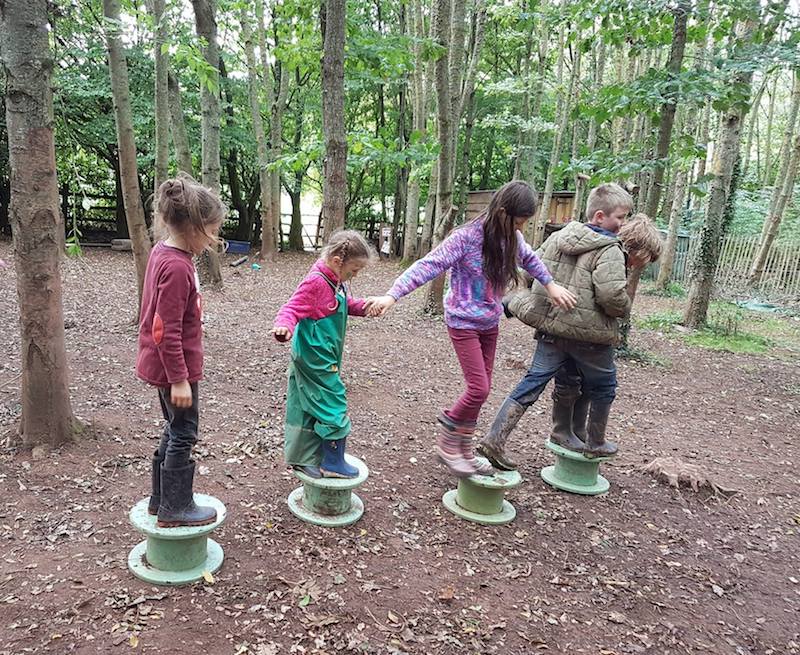
The Home Education community has been very loyal to us, which means that children come to our forest schools weekly over many months, sometimes even years. This means I can really get to know the students, which of course takes time.
The children come from different backgrounds and there are all sorts of reasons why they are being home schooled. Some have behavioural or medical issues that prevent them from succeeding in the traditional school environment. Others simply don’t like school, or their parents decided they could offer a better experience away from the classroom.
I think these groups act as rehabilitation for some of the children, which makes them the most challenging and rewarding groups to run. Often a child’s trust in adults needs to be restored, and forest school offers the perfect scenario in which to do that.
One child came to us who had had a worrying experience with the teachers at his school. He felt his trust had been abused. For the first couple of months he wouldn’t leave my side, becoming anxious if I was out of sight for only a few seconds. Coming to forest school was a huge step in itself. He had shunned other groups in fear of repeating this previous traumatic experience.
Gradually he relaxed into the sessions, re-established some friendships and came to trust me. As I gently encouraged him to play out in the woods, his confidence grew and he didn’t need my reassuring presence.
We reached some big milestones over the coming months. He returned to being the confident, cheeky and capable young man that we knew from a previous time he’d been to Exeter Forest School. Now, any fear of being out on his own is a distant memory.
I am not a qualified teacher and have never worked in a school, but I wonder if this transition was easier in a setting like ours, compared to a classroom?
Growing children’s confidence is a key aspect of forest school. In the last few months, at the suggestion of the children, we’ve introduced a student forest school leader to each session. Chosen at random from a hat, the children who agree to put their name in, take turns to plan and deliver some activities for part of the session.
What a great experience this is for them! It can prove challenging holding the attention of a hyper group of 8-year-olds. The student leader needs to make sure the games are fair and has to learn skills to resolve any conflicts if they aren’t.
Children, whose confidence has been knocked by not fitting into the traditional school system, become leaders out here in the woods. It may take months, it may take a year, but eventually all the children decide to put their name in the hat and have a go at leading part of a session. That in itself is a huge step for a child who has learnt to be the joker in order to cope with issues at school, or who is so shy they wouldn’t previously have dreamed of stepping out in front of a crowd.
We can’t offer academic excellence out here, or monitor their development through paper tests. But we are doing a pretty good job at helping to tap in to their creative genius and their knowledge of their own safety and boundaries. We can help show them how trust works, and if they give it to us as leaders, we’ll give it back to them, which is empowering for a child.
It’s for these reasons I believe forest school offers something unique to the home ed community in particular, and why I think there will always be a need for our forest school.
By Chris White, manager of Exeter Forest School
Copyright © Outdoors Group Ltd 2021. All Rights Reserved.
Registered Office: The Outdoors Group, Western Lodge, Crediton, Devon, EX17 3NH. Company number 10755829
Terms & Conditions / Website Terms / Privacy Policy / Sitemap / Built with ♥ by Solve
One Response
It’s actually a nice and useful piece of information. I’m happy that you simply shared this
useful information with us. Please keep us up to date like this.
Thanks for sharing.